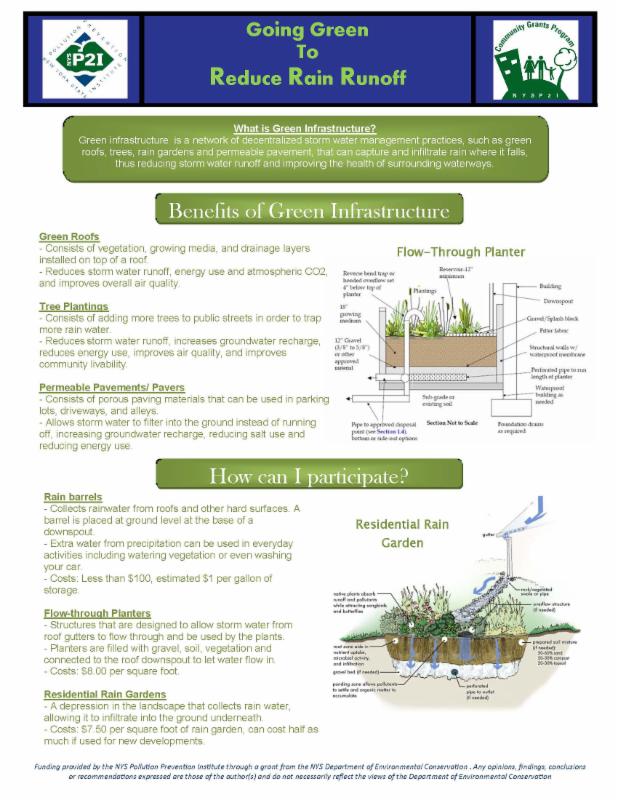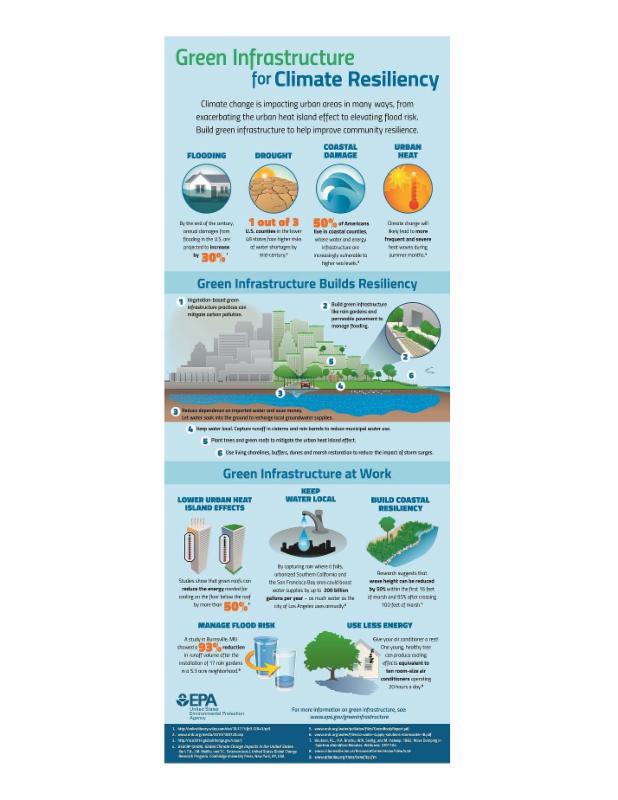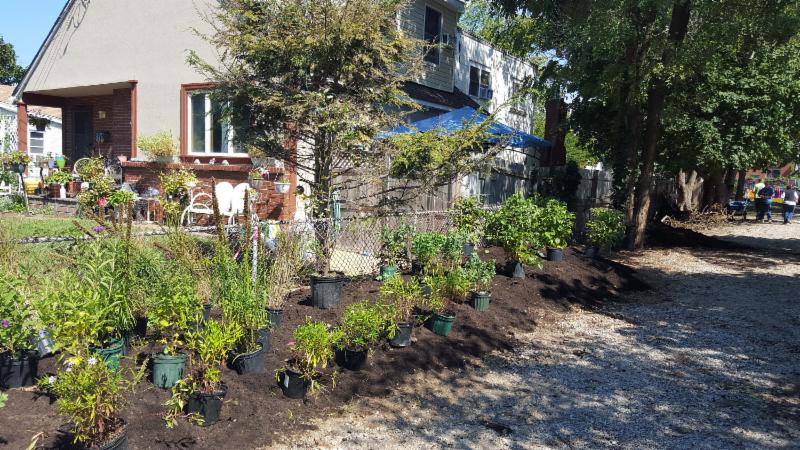Disaster Preparedness Educational Materials
Take a proactive approach toward natural disasters
|
Reduce Rain Runoff
Going green at home or in the workplace
In 2015, Sustainable Long Island launched a new initiative entitled "Reduce Rain Runoff." This rainwater capture and storm water management program implemented conservation practices within Long Beach and East Islip and emphasized the importance of community green infrastructure practices. The project will look to expand into additional communities in the future. Read more here...
Below are some of Sustainable Long Island's newest educational materials from this program (click to download or visit resources).


|
Teatro Yerbabruja Raingarden Build
Garden built at Central Islip Arts Center

Last month, Sustainable Long Island worked with Nelson, Pope, & Voorhis to design, plan, and implement a raingarden in partnership with Teatro Experimental Yerbabruja at the Central Islip Arts Center.
Staff and volunteers enriched the 10' x 25' site with compost, planted over 90 native perennials, and constructed a trench leading to a nearby sewer. Sustainable Long Island previously led a community garden build at the Arts Center as well.

This garden is a form of green infrastructure that will collect rain water, filter pollutants, and allow for increased water infiltration.
The project was funded by the New York State Pollution Prevention Institute through a grant from the NYS Department of Environmental Conservation.
|
Racing to Zero RECAP
Sustainable LI film screening event focused on zero waste

On Tuesday, September 29, 2015, inside the Alumni House at Adelphi University, Sustainable Long Island presented an exclusive screening of Racing To Zero - a quick-moving, upbeat documentary presenting new solutions to the global problem of waste.
At the event nearly 100 attendees enjoyed a pre-film reception which aimed to produce zero waste itself. Napkins, cups, even tea stirrers were compostable; glasses, plates, and utensils were re-washed and re-used; and all food and general waste was collected, separated, and brought to a local compost facility as the night ended. A Question + Answer session took place after the film led by Emily Kang, PhD, of Adelphi University. Joining her were panelists Bernadette Martin from LI Green Market, Tom Stack, RA LEED AP from D'Addario & Company, and John G. Waffenschmidt from Covanta.  The panel participated in an engaging discussion focusing on some of the keys to a successful waste reduction program and recycling program, as well as some of the short term and long term strategies for improvement in decreasing local waste. Some of the points highlighted included: - Zero waste strategies also integrate a balance of education, technical and financial assistance, and infrastructure investments.
- When done correctly, discarded materials are a local resource that can contribute to local revenue, job creation, business expansion, and the local economic base. It's not what waste is, it's what waste can become.
- Recycling one ton of paper saves 17 trees, two barrels of oil (enough to run the average car for 1,260 miles), 4,100 kilowatts of energy (enough power for the average home for six months), 3.2 cubic yards of landfill space and 60 pounds of air pollution.
- Many towns, schools and organizations now use single-stream recycling, or zero-sort waste to deal with their recyclables. This vastly increases the ease with which people can recycle - in addition, single-stream recycling usually accepts a greater variety of products. Other tools to boost recycling include banning the pickup of recyclables in the trash, or charging for pickup of trash, while keeping recycling free.
- The average U.S. household generates 650 lbs. of compostable materials each year. Over 60 percent of what we put in our landfills is organic waste, such as food scraps, yard trimmings, and paper, much of which could be recycled by composting. Composting saves money. Families reduce their garbage collection bills and municipalities save money on transporting and disposing of waste when organic materials are eliminated from the collection system. Compost improves soil, adds important nutrients for plants, and reduces the need for expensive commercial fertilizers.
Three years ago, the mayor of San Francisco pledged to achieve zero waste by 2020. Racing to Zero tracks San Francisco's waste stream diversion tactics and presents innovative new solutions to waste. The film documented a surprising, engaging and inspiring race to zero. Read more here...
Thank you to all of our sponsors! 
|
Together we can build a more
sustainable Long Island

These challenging economic times have magnified the problems we Long Islanders face each and every day. With our leaders warning us of tougher times to come, thinking regionally and acting locally is urgent. It is in all of our best interests to stay engaged and do what we can together to build a more sustainable Long Island.
Please consider making a tax-deductible gift to Sustainable Long Island that will help support our ongoing and future work within your Long Island communities; while helping advance economic development, environmental health, and social equity!
|